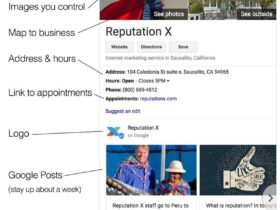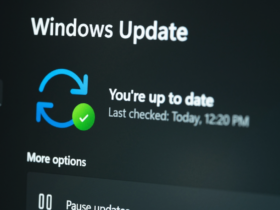Sometimes, a single word or topic can change how your content is treated online. For creators and businesses, being labeled “controversial” by Google isn’t always about breaking rules—it can result from sensitive language, user feedback, or simply engaging with a highly disputed subject. Regardless of intent, the impact is real: reduced visibility, limited ad access, and reputational risk.
What Does It Mean to Be Tagged as Controversial?
Google doesn’t hand out warning labels. There’s no bright red stamp across your website. However, their systems, guided by content policies and user signals, can classify specific topics or authors as sensitive or disputed. That label might not be visible, but it impacts how content is treated in search rankings and advertising eligibility.
Controversial subjects often involve disagreement—politics, health, race, gender, or any area where strong opposing opinions exist. These topics are messy, personal, and powerful. They touch on the very ways people define truth and identity.
Why Does Google Flag Content as Controversial?
The goal is to protect users from harmful or misleading content, at least publicly. But what counts as harmful is often subjective. An article raising questions about pharmaceutical lobbying might be considered responsible journalism by one group and dangerous misinformation by another.
Google considers several factors when evaluating a subject:
- Does it include sensitive or disputed claims?
- Has it triggered user complaints or downvotes?
- Is it associated with a controversial figure?
- Is the tone inflammatory or neutral?
Algorithms don’t understand nuance. They see patterns, signals, and reports. And once content is flagged, it can affect everything from your visibility to your monetization ability.
When content is classified as controversial, the fallout is more than a click drop. For independent creators, it can mean losing partnerships, seeing open revenue streams cut off, or being excluded from trending results.
For businesses, a controversial tag can make a product or service seem suspect, even if the content includes an interview or statement relating to a hot-button issue. In an office setting, internal blogs or opinion pieces may get caught in the filter if they venture into cultural debates.
The label also affects how people see you. Even if you intend to encourage discussion or change, controversy creates caution. Brands pull away, and readers hesitate.
Navigating Controversial Topics Without Losing Reach
So, how do you write about the world as it is—with all its questions and conflict—without getting buried by algorithms?
1. Be Clear, Not Provocative for the Sake of It
There’s a difference between covering a controversial topic and using it as clickbait. Audiences can tell the difference, and so can Google. Aim to explore the issue, not inflame it.
2. Cite and Link to Credible Sources
When you discuss disputed subjects, reference authoritative data. Link to peer-reviewed research or balanced reporting. This shows you’re not pushing an agenda—you’re offering perspective.
3. Avoid Loaded Vocabulary
Words carry weight. Antonyms can turn a neutral point into a pointed jab. Consider how you frame the subject. Are you inviting a view, or shutting one down?
4. Diversify the Voices You Feature
When possible, show multiple sides of an issue. Highlight disagreement. Let readers see the debate instead of being told what to believe.
5. Monitor Feedback and Adapt
Controversy doesn’t mean you’re wrong. But it does mean you’ll need to listen. Pay attention to how your content is received. Is it fostering open dialogue? Or just dividing people further?
Final Thoughts: Being Controversial Isn’t the Problem
Every era has its turning points—moments where open discussion shapes the future. Today, those moments are playing out online. Being controversial, in itself, isn’t the problem. Some of the most important change comes from asking uncomfortable questions.
But how you frame that controversy matters in the age of search engines and algorithms. If you want your voice to stay visible, not silenced by a quiet line of code, you must approach complex subjects with clarity, care, and a complete understanding.
Because when your content turns up in search, it shouldn’t be buried under fear. It should open a conversation that’s worth having.















